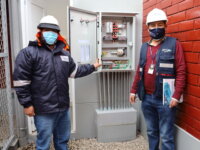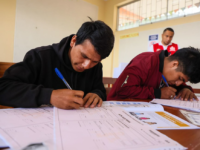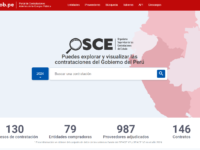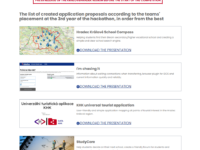The Singapore Land Authority (SLA) embarked on a groundbreaking project to create the world's first digital twin of a country. This initiative, known as Virtual Singapore, involved the use of cutting-edge technology to develop a highly detailed 3D representation of the entire island nation. The project used laser-scanning aircraft and vehicles equipped with lasers to capture terrain and surface information, creating a comprehensive digital model of Singapore. The digital twin encompasses…
Innovation Tag: Digital and Technology Transformation
SignAvatar's long-term vision is to enable real-time sign language generation, opening doors to multiple applications such as TV, Social Media, Video calls, Online courses, and many applications in the public sector.
Our first product is TransportSign, a system for auto-generated service information in Sign Language for Airports and Train Stations. By transforming audible announcements and on-screen text into SL, we enable more than 460 Million Deaf individuals around the world to travel freely
The Diia.Engine platform is an innovative solution aimed at transforming how ministries and government agencies create and manage registers. This platform facilitates the orderly and secure storage of data, automates and digitizes public services, fostering the launch of online services and contributing to the broader digitalization of government functions. The Diia.Engine platform has been implemented to optimize the interaction and data management in Diia, the digital interface between the…
Social Security is now proactively sending communication of the proposal to award the Family Allowance, as soon as the baby is registered at the maternity hospital. All the father or mother has to do is go to their Social Security Direct message area and confirm the proposal. With this confirmation, the Family Allowance is automatically awarded and no further action is required.
Case Study
Protected: Internet WiFi gratis para mejorar el desarrollo tecnológico, educativo y social de la…

The Pasco Regional Government proposes free WiFi to enhance access to information and education in parks and squares, reducing digital divides. Customized home pages and user management aim to close regional digital gaps, fostering educational, professional, and commercial activities.
Case Study
Protected: Solución de Soporte Tecnológico para el Escrutinio (SST) con Certificación Digital…

The Technological Support Solution for Scrutiny(TSS),developed by ONPE, modernizes Public Management and Digital Government. During elections,poll workers manually fill out multiple official records. The TSS digitalizes votes and produces printed records, simplifying their task. The results are encrypted and securely transmitted to the central office, speeding up their delivery. Additionally, digital certificates were introduced for electronic signatures, giving legal value to the generated PDFs
The UNDP in Ukraine training on a human rights-based approach in public policy design helped public servants who are involved in the digitalisation sphere learn how to develop state policies and electronic services based on principles of human rights and gender mainstreaming. It helped them dispel myths and learn the basic requirements, which resulted in more inclusive public services developed for Ukrainian citizens.
Case Study
Portal de Contrataciones Abiertas de la Compra Pública -Open Procurement Contracting Portal

The Organismo Supervisor de las Contrataciones del Estado (OSCE) supervises public procurement, ensuring integrity and efficiency. Its Portal de Contrataciones Abiertas de la Compra Pública plays a crucial role, improving transparency with international standards. By implementing the Open Contracting Data Standard (OCDS), it provides detailed access, benefiting entities, suppliers, citizens and civil society.
The data portal is a central data point for the public. It provides citizens with high-quality open data of the region, bringing it closer to the general public in user-friendly formats, in the form of map outputs. It is an innovative solution of the Hradec Králové Region for sharing and visualizing data from publicly available sources and data of the region. It ensures transparency, openness and accountability of public administration.
In order to continuously improve public policies and correct any deployment difficulties, the French Government has set up a data-driven steering system that allows it to monitor the results of more than 60 priority policies across all departments in its territory. This system is embodied by an internal steering and monitoring tool (PILOTE) and a citizen information site presenting the results in open data.


